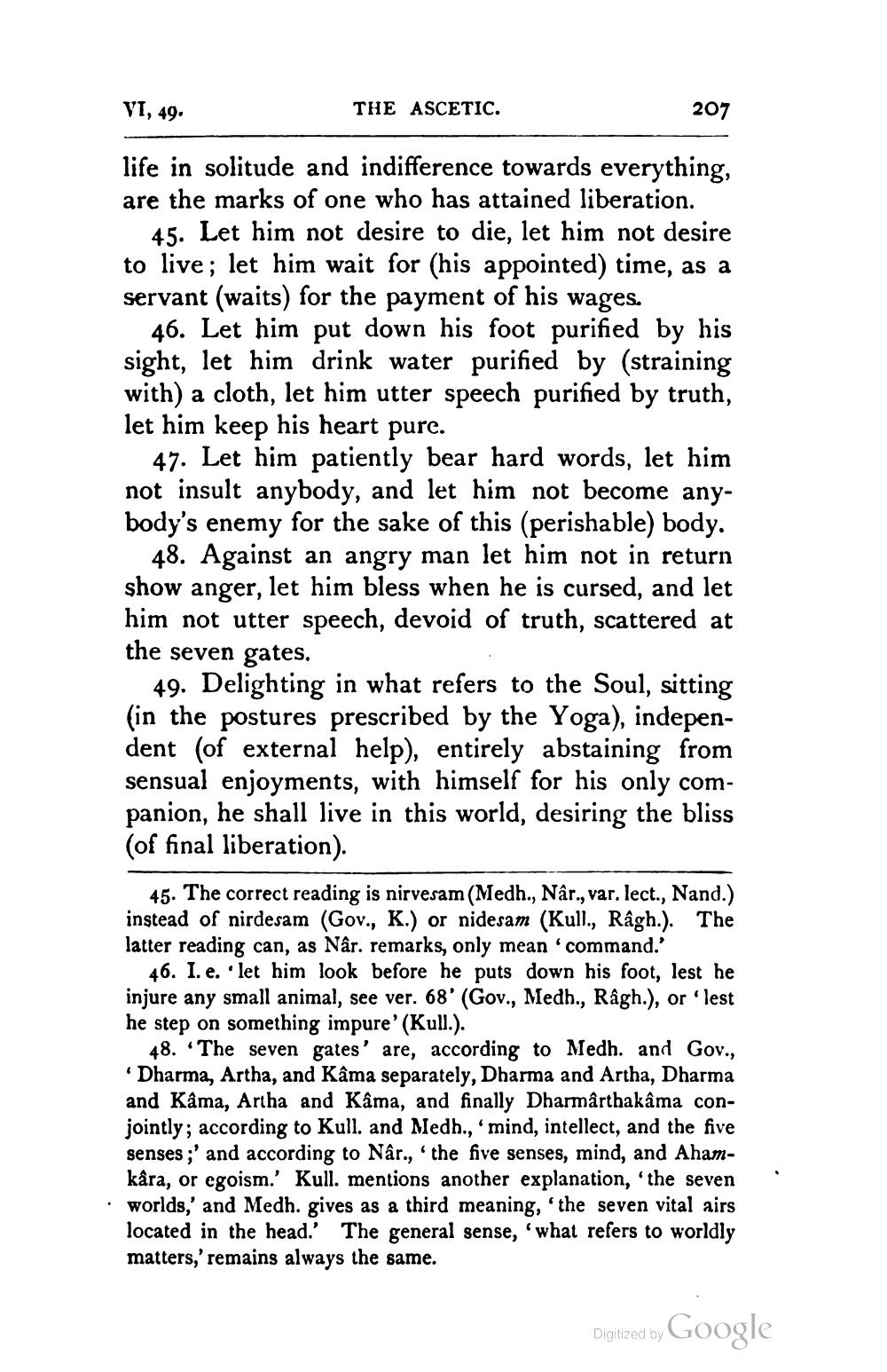________________
VI, 49.
THE ASCETIC.
207
life in solitude and indifference towards everything, are the marks of one who has attained liberation.
45. Let him not desire to die, let him not desire to live; let him wait for (his appointed) time, as a servant (waits) for the payment of his wages.
46. Let him put down his foot purified by his sight, let him drink water purified by (straining with) a cloth, let him utter speech purified by truth, let him keep his heart pure.
47. Let him patiently bear hard words, let him not insult anybody, and let him not become anybody's enemy for the sake of this (perishable) body.
48. Against an angry man let him not in return show anger, let him bless when he is cursed, and let him not utter speech, devoid of truth, scattered at the seven gates.
49. Delighting in what refers to the Soul, sitting (in the postures prescribed by the Yoga), independent (of external help), entirely abstaining from sensual enjoyments, with himself for his only companion, he shall live in this world, desiring the bliss (of final liberation).
45. The correct reading is nirvesam (Medh., Nâr., var. lect., Nand.) instead of nirdesam (Gov., K.) or nidesam (Kull., Râgh.). The latter reading can, as Nâr. remarks, only mean 'command.'
46. I. e. let him look before he puts down his foot, lest he injure any small animal, see ver. 68' (Gov., Medh., Râgh.), or 'lest he step on something impure' (Kull.).
48. "The seven gates' are, according to Medh. and Gov., Dharma, Artha, and Kâma separately, Dharma and Artha, Dharma and Káma, Artha and Kâma, and finally Dharmarthakâma conjointly; according to Kull. and Medh., 'mind, intellect, and the five senses ;' and according to Nâr., 'the five senses, mind, and Ahamkâra, or egoism.' Kull. mentions another explanation, the seven worlds,' and Medh. gives as a third meaning, the seven vital airs located in the head.' The general sense, what refers to worldly matters,' remains always the same.
Digitized by Google




